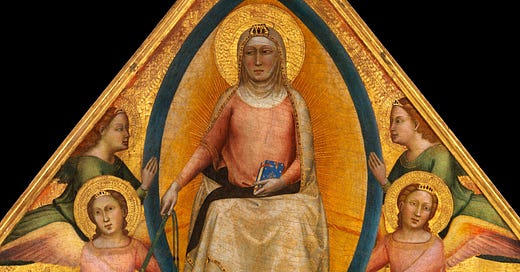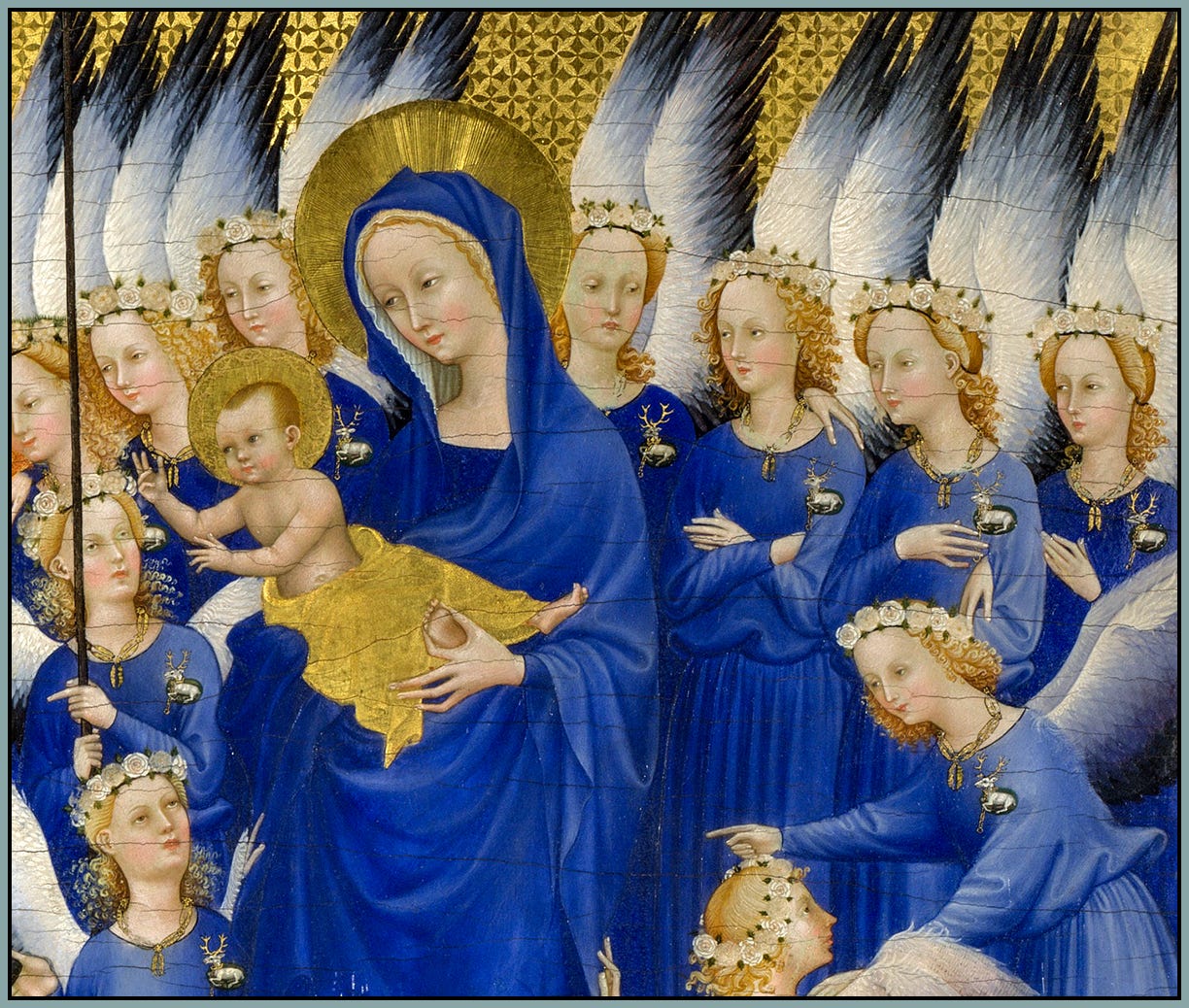The shining quality of an epic hero, his magnanimity, his constancy, his patience, his piety, or whatever characteristical virtue his poet gives him, raises first our admiration. We are naturally prone to imitate what we admire.
—John Dryden
We ended Sunday’s discussion of epic literature with examples of introductory passages, called proems, from the Iliad and the Odyssey. Another famous proem is found in John Milton’s Paradise Lost, a magnificent Renaissance epic written in conscious imitation of classical models:
Of Man’s First Disobedience, and the Fruit
Of that Forbidden Tree, whose mortal taste
Brought Death into the World, and all our woe,
With loss of Eden, till one greater Man
Restore us, and regain the blissful Seat,
Sing Heav’nly Muse…
Milton imparts a special power to these opening lines by creating a periodic sentence structure. A “period” in rhetorical terminology is a clause that makes you wait until the end to understand its basic meaning; in this case, the core of the action, and the word that would logically precede “of man’s first disobedience,” is the verb “sing,” which we don’t encounter until the sixth line. Consider the emotional and imaginative effect of a well-crafted period: the delay in “revealing” the verb creates suspense, the weakening of logical sequence kindles our more poetic and mystical modes of thought, and the eventual fulfillment of the sentence arrives with climactic energy.
Taking inspiration from Milton, who in turn took inspiration from Homer, I wrote the lines below as an exercise in drawing rhetorical force from the periodic epic proem.
Of paradise a Virgin made and Eden in her flesh arrayed, of pinpoint jewels in her eyes, that are the lights of day and night and wept four rivers when He died and watered rough-hewn trees of life; of goldspun hair that is fair autumn, with the ripest wheat uncut, and snowfall skin that is pure winter, like to crystals in the sun, and belltone voice that is the spring, with earth in birdsong born anew, and hearthlike heart that is fey summer, heat refreshing as the dew; of hands that held the Universe and brought Him to her maiden breast and there His infant hair caressed as Woman nourished God; of cheeks that when she smiles dance like all the lilies of the field yet tremble oft when she recalls that Holly Tree on Golgotha, planted by a Dove, she said, then dyed by man in branch and leaf, not berry only, red; of ivory roses dipped in blood and ivory blood on radiant wing, of radiant Virgin vanquishing and vanquished devils languishing, of Queen and victory and King: of Mary, muse, O goddess—Sing.
For me, history’s greatest purely human hero is St. Mary of Nazareth—the new Eve, the bride of Almighty God, the Mother of the Savior, the heavenly Empress of medieval civilization. I would like to write an epic poem about her life, but it’s hard to find the time—Virgil worked on the Aeneid for eleven years and still ended up dying before the work had been truly completed.
Keep reading with a 7-day free trial
Subscribe to Via Mediaevalis to keep reading this post and get 7 days of free access to the full post archives.





